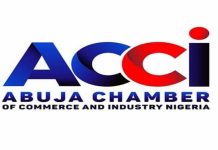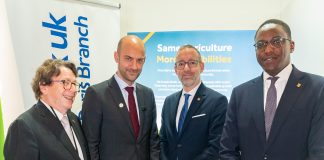Nigerian states will receive the first tranche of a $750 million World Bank loan by December 2022. According to the final report for State Action on Business Enabling Reforms, which is published on the World Bank’s website, around $0.5 million to $4 million would be distributed to Nigerian states based on specified criteria.
The new loan was made possible by a Program for Results instrument as part of the State Action on Business Enabling Reforms. The World Bank estimates that the initiative will run from 2023 to 2025. Its foundation will be the Presidential Enabling Business Environment Council.
The program’s goals are to increase the efficiency of land administration, the legal environment for private investment in fiber optic infrastructure, and the services offered by investment promotion agencies and other organizations and public-private partnership units. It is also targeted at achieving efficiency and transparency of government-to-business services in participating states.
The report read in part, “This proposed $750m lending operation will last from 2023-2025 and consists of: (1) a $730m performance-based financing component for state governments, which will be implemented as a Program-for-Results; and (2) a $20m Technical Assistance component which will be implemented as Investment Project Financing to support implementation and capacity building.”
The disbursement will be in line with certain disbursement-linked indicators, which means the states are meant to achieve certain criteria to be qualified for each disbursement under this programme.
The report noted, “Achievement of each prior result will result in indicative disbursement of an allocation of $0.5m to $4m (for select stretch targets).” Major conditions are improved efficiency in property registration and sustainability of the land-based investment process support in a state.
This initiative is comparable to the 2018 State Fiscal Transparency, Accountability, and Sustainability project. The SFTAS initiative, which aims to improve openness and accountability at the subnational level, will come to an end this year.
The World Bank allocated $1.5 billion to the project in two installments of $750 million (December 2018 and December 2020). The money is a loan to the federal government, despite the fact that it is a grant to state governments.
Dr Zainab Ahmed, Minister of Finance, Budget, and National Planning, said earlier this month that states had received N471.9 billion of the $1.5 billion World Bank-assisted SFTAS Programme for Results.
This initiative is comparable to the 2018 State Fiscal Transparency, Accountability, and Sustainability project. The SFTAS project was designed to strengthen transparency and accountability at the sub-national level and will end this year.
The report obtained by our correspondent revealed that the current SABER programme’s implementation and institutional arrangements would also build on the SFTAS project.
When announcing the programme in August, Vice President, Yemi Osinbajo, had said that the kind of business environment Nigeria required for significant economic growth could only be achieved through hard work at the sub-national level.
He said, “For all who are charged with responsibilities at the state level, you have your work cut out for you.
“If we are going to have the kind of business environment that our country deserves and that can make a difference for our economy, it is the hard work at the sub-national level that would move the needle.”












